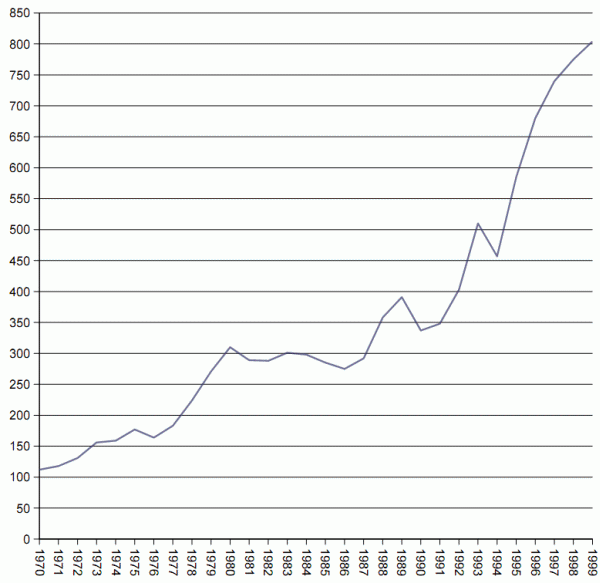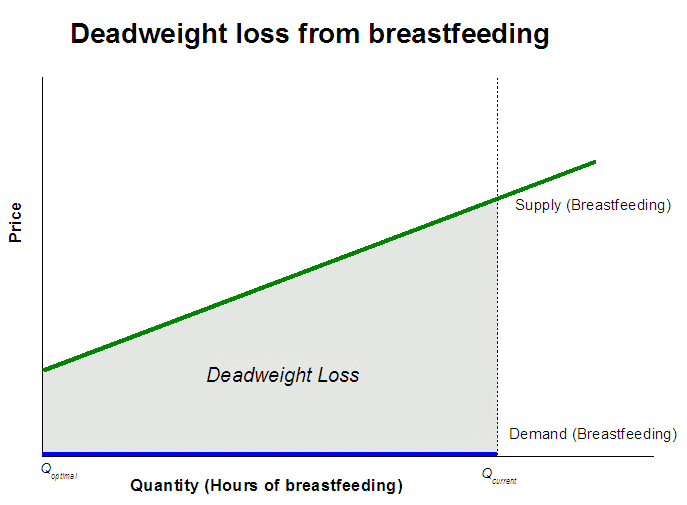29 September 2007
27 September 2007
Hayek
By all means let us assist the poorer people as much as we can in their own efforts to build up their lives and to raise their standards of living. An international authority can be very just and contribute enormously to economic prosperity if it merely keeps order and creates conditions in which the people can develop their own life; but it is impossible to be just or to let people live their own life if the central authority doles out raw materials and allocates markets, if every spontaneous effort has to be "approved" and nothing can be done without the sanction of the central authority.
The Road to Serfdom
Hayek is far more reasonable than modern libertarians. I found bits of The Road quite appealing. Although it's possibly a little too easy to say that we should limit our involvement to "creating conditions" conducive to development. That's all most people would believe, they just differ on what conditions we should create. But then perhaps I don't understand how seriously communist people were back in the day, and the fact that almost no one is anymore is partly thanks to arse munchers like Hayek.
26 September 2007
Rapidly Depressing
It is common knowledge that coffee prices have been rapidly depressing all over the world since the beginning of 1999, which adversely affects producers’ benefits.
Representative of the Vietnamese Coffee Industry
I imagine that would be rather depressing.
International Monetary Conspiracy
Some people have accused the IMF of managing a "conspiracy" of banks and wealthy nations, to prevent poor countries from declaring some of their debt as unfair and refusing to pay it back. The poor nations claim that the money was borrowed by dictators who mostly kept it for themselves or used it to kill their own citizens. It seems like a reasonable accusation because the IMF proudly takes the responsibility for creating creditor cartels and its mandate is to preserve financial stability around the whole world, not to help poor countries get less poor.
However, I've found an even more persuasive sign that there's a conspiracy. And it's the piss weak explanations that come out of the IMF attempting to explain why there's no conspiracy. The argument against letting countries not pay back unfair debt is essentially this. If a government is labelled as corrupt because it's stealing the money it borrows, then banks will stop lending money to it. And if banks stop lending money to it the government won't have any money with which to develop the nation.
Seriously. That is all they come up with. It strikes me that if you decide a government is corrupt and stealing development money, then you'd be happy that banks stopped lending to it.
The author sets up a couple of straw proposals so he can fluff out the article explaining what is wrong with them. But the actual model that is proposed by other academics, he only has one argument against. And it's total bollocks. He lays out this one-paragraph argument, and then smugly say there's obviously no need to resort to conspiracy theories - odious debt proposals are apparently going to stay in "cold storage". On the contrary, there seems to a real need for some other explanation. And if a conspiracy theory is the only explanation anyone can find, then why not run with it.
Besides it isn't much of a conspiracy theory. The IMF itself only offers one sensible reason for forcing poor countries to pay back their debt - that the rich countries can't afford for them not to.
USS Cole hitches on Blue Marlin
The MV Blue Marlin is fully sick.
25 September 2007
Superbad
It was pretty bad.
24 September 2007
Word of the day
embonpoint: plumpness of person.
23 September 2007
Grindhouse
I watched Death Proof and Planet Terror in the last couple of days - although in the wrong order. They were two of the coolest films I've ever seen. Planet Terror was just hilarious and cool. Death Proof was beautiful and perfectly made. Quentin really is the best director we have. I don't think he tells the stories that I most want to hear, but the stories he tells he tells better than anyone. He's the ultimate example of how much the world benefits from OCD artists.
Flirting
There are two gorgeous doves flirting on my roof-balcony. The girl is playing it a little coy though.
Ho Chi Minh
[If the Americans] want to make war for twenty years then we shall make war for twenty years. If they want to make peace, we shall make peace and invite them to afternoon tea.
21 September 2007
Once
Once is a tremendous, beautiful film. I thought I was just going to fall more in love with Glen Hansard, but I ended up liking his little friend just as much. He met her (Markéta Irglová) in Czech six years ago and he slowly got a crush on her, even though she was pretty young. Then they made an album together. Then they made a movie together and this was it.
It's about being a musician and who are the best sorts of people to fall in love with. The girl is a way cool character, and you get the feeling that everything Glen Hansard likes about the actor got poured into the film. She's a seriously friendly, outgoing young lass with the relationship boundaries of a Jedi. And there's nothing sexier than healthy boundaries.
And the music too. Good music. Good Framesy music.
19 September 2007
Econometrics Exam
I did the mid-session exam for econometrics. So much easier than last time. I had time to do all the questions I understood and I understood more than none. I might even pass it.
Roadtrip Chatter
I've created a Roadtrip Forum. If you apply for membership you can start posting.
18 September 2007
The Deadweight Loss from Breastfeeding
I've been thinking about the things we do every day which we all assume are beneficial, but which we probably overdo. People rarely stop to consider the costs and benefits of their behaviour. Even when they think about it they often don't measure it in terms its real value - what the market is willing to pay. Many things we give away for free and overconsume because we misjudge the true costs and benefits.
A good example of this is breastfeeding. How often do you really stop to consider what the right amount of breastfeeding is? What are the costs and benefits of this common human behaviour? It is often assumed that breastfeeding costs society nothing, but is not strictly true. Neglecting to measure opportunity costs is one of the most frequent fallacies of economic reasoning. However, the true costs are fairly easy to measure. They are simply the opportunity cost of the mother's time, or what she would earn if she were to return to the workforce. So we can here see one reason why we may overproduce breast milk. Because breastfeeding infants do not face the true costs of production, they overconsume breast milk. We will examine below the extent of this overconsumption.
The benefits are slightly trickier, but measuring these is also fairly straightforward if you take a moment to consider it. The market for breast milk is overwhelmingly dominated by young children, who have lower than average incomes. So the demand curve for breast milk will look a little different to the demand curves you're used to seeing in economics textbooks. If we reasonably assume that the income for the majority of children demanding breast milk is approximately $0 and that they will spend virtually all their income on breast milk, constructing a demand curve is simple. And from this demand curve we can discover the socially optimal level of breastfeeding.
I've attempted below, to model what the market for breastfeeding might look like. The supply curve is upward sloping, reflecting normal labour market economics. The demand curve actually follows the horizontal axis for it's whole length, reflecting the lower purchasing power of young children. Just as with any market we want to equate costs and benefits which will minimise the deadweight loss. Society currently produces quite a large amount of breast milk (Qcurrent). However, as you can see, at this point the costs of production heavily outweigh the benefits. In an unfettered market, production will move away from this suboptimal level towards a socially efficient equilibrium. Perhaps surprising to some, it turns out that the optimal level is actually much lower (Qoptimal). As you can see, at this level of production the deadweight loss is zero. At a production level of zero, costs and benefits are also equalised at zero - you have a social optimum!
This is just one example of how economics can provide helpful and sometimes surprising solutions to the real world problems we face every day.
17 September 2007
Contributions
Having spent a few years studying economics now, I'm not nearly as impressed as I once was. I can't think of many ideas that I'd consider genuine, unambiguous contributions to the world. I thought I'd start a list of ideas I think qualify.
- Supply and demand (and markets).
- Opportunity cost.
- Theories of inflation.
- The meaning of money.
Even some of these have problematic aspects. Like application of supply and demand to labour markets. Some of the solutions to inflation are rather vague and a little too convenient for certain social classes. There are probably other ideas that are good too and you can argue that virtually of economics can be related to supply and demand, so listing it is kind of a cop out. But I'm kind of impressed by the pure theory as much as its application (although the theory can be applied really well to some real world markets).
15 September 2007
The History of Development
The only radical alternative to the reality of scarcity caused by unsatisfiable needs would have to be based on a way of life that takes as starting point the reduction of individual needs. This is not a matter of academic analysis (and, for that matter, of wrong or right economic analysis), but rather one of individual choice and would take us into practices and religions of other cultures. The irony is that these cultures themselves have to a large extent succumbed to Western values of scarcity under conditions of abundance.
From a review of Gilbert Rist's The History of Development.
I started studying economics because I cared about scarcity, but now I wonder if scarcity is really our problem. This is potentially a rather glib idea, so I'm not entirely comfortable with it.
Libby and Miles
Hey libs, if you're at home sometime today I can drop off your scarf, jumper and pear nectar.
Libby just got this SMS.






